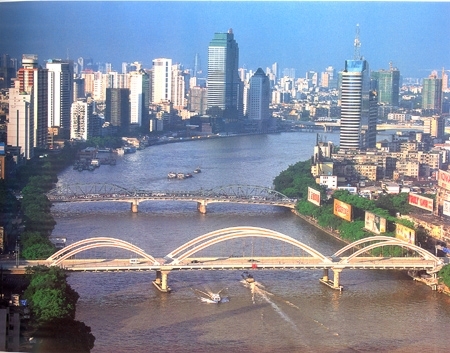


By EO Editorial Board
Issue 583, August 27, 2012
Cover
Translated by Tang Xiangyang
Original article: [Chinese]
Recently there’s been moves toward reform of the administrative examination and approval system – a bureaucratic (and often corrupt) procedure where individuals and enterprises must gain approval from government agencies to go forward with certain activities. Guangdong Province has been set as a pilot to remove many of the items that require navigating through this process.
Should we put high hopes on reform of the administrative examination and approval system in Guangdong Province? Guangdong was the pilot for China’s Reform and Opening Up three decades ago and it may once again play the role of reform pioneer in the coming decade; that is if it can have a “self-revolution” by giving rights back to the market and society, restrain itself from expanding government power, and allow itself to be effectively monitored.
There are three driving forces behind China’s reform: Investment, exports and domestic demand. But thanks to delayed government reform, they never line up. The government holds vast resources while the market can’t meet its full potential. A more vibrant society is longed for, but the government’s “parental love” shelters the country and limits the space for growth. We should realize that this is not only constraining economic and social reforms, but it might also destroy what we’ve already achieved.
Our worry is justified. In recent years - especially after the 2008 financial crisis - administrative interference in the economy has returned in the name of “saving the economy,” blurring the line between government and the market. The government is acting beyond its authority, but people are accepting it as natural. Many are speaking in favor of a command-and-control economy. Temporary measures meant to tackle emergencies are trending toward being solidified as permanent government duties. It’s not only in the economic field, but also in social affairs. Many government agencies equate social management with control and giving orders.
So the government won’t be effectively reformed if the administrative examination and approval system remains. The task is so urgent that the central government has decided to let Guangdong pilot reforms. In fact, Guangdong has already begun. Its direction was stated at an executive meeting of the State Council on Aug 22, which said that the government should exit from arenas where individual citizens, companies and other organizations are capable of making decisions, market competition mechanisms are able to effectively adjust, and industrial associations or intermediary agencies can conduct self-discipline.
But it’s not easy for Guangdong to succeed. Generally speaking, the central government’s decision to establish a pilot shows its determination to begin reforms. Guangdong will be authorized to stop or adjust some administrative examination and approval items set by the State Council or ministerial agencies.
However, we view this authorization as a means to self-reduction and adjustment of government powers. To take advantage of this authorization, the Guangdong government needs to not only carry out a “self-revolution,” but also be prepared to “offend” central ministries.
For Guangdong, it’s not a small challenge. The local governor once said that every step of the reform was “cutting flesh.” He was emphasizing how big the barriers are and how complicated the interests involved might be. On one hand, will Guangdong be brave enough to stop the examination and approval rights set by the State Council and ministries? It’s related not only to interests within the provincial departments, but also the ministerial agencies. How can Guangdong manage the tangled relationships?
On the other hand, will Guangdong be brave enough to stop existing provincial examination and approval items? How can it constrain officials from rent-seeking and bringing back cancelled items?
We might be over-worried, but a warning is still necessary. It’s nothing new for a government to act beyond its authority, or be absent when it’s needed. But why hasn’t it ever fundamentally changed? Premier Wen Jiabao once said, “Only through receiving public monitoring will government refrain from slacking off.”
That means that there’s always the possibility for government to be corrupted if there’s no supervision. So Guangdong’s “self-revolution” doesn’t only mean a determination to curtail its power, but it has to be hard on itself and receive absolute supervision from the public to ensure that power is “from the people and for the people.” Only in this way will it be possible for the government to holds its rightful position.

